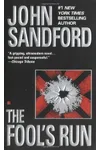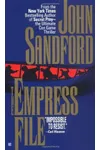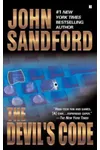Step into the electrifying world of Kidd, where high-tech heists and moral tightropes collide in a pulse-pounding techno-thriller saga! Written by John Sandford (the pseudonym of Pulitzer Prize-winning journalist John Roswell Camp), the Kidd series follows computer genius Kidd and his daring partner LuEllen as they outsmart corrupt corporations and shadowy government forces. With a blend of cutting-edge tech and classic con artistry, these novels deliver a thrilling ride through a digital underworld.
Unlike typical crime novels, Kidd’s adventures weave a tapestry of moral ambiguity, asking whether the ends justify the means when taking down the powerful. If you’re a fan of fast-paced plots, witty banter, and tech-driven suspense, this series is your next obsession.
How Kidd Began
In the late 1980s, John Sandford, already a celebrated journalist, turned his pen to fiction, crafting the Kidd series to explore the uncharted waters of early computer culture. Inspired by the rise of hacking and corporate espionage, Sandford created Kidd, a hacker with a painter’s soul and a knack for bending rules. Debuting in 1989 with The Fool’s Run, the series captured the zeitgeist of a world on the cusp of the digital revolution, blending Sandford’s knack for suspense with a futuristic edge.
Sandford, writing initially as John Camp, drew on his investigative journalism background to ground the series in gritty realism. His goal? To craft a modern-day Robin Hood with a keyboard, paired with LuEllen, a cat burglar whose street smarts complement Kidd’s tech wizardry. The result was a fresh take on the thriller genre, one that still feels ahead of its time.
The Heart of Kidd
The Kidd series spans four novels, each a standalone adventure packed with high-stakes cons. The Fool’s Run (1989) introduces Kidd, hired to sabotage a rival corporation’s systems, only to find himself double-crossed in a web of betrayal. The Empress File (1991) takes Kidd and LuEllen to Mississippi, where they dismantle a corrupt city council amid racial tensions and political intrigue. The Devil’s Code (2000) dives into government conspiracies, with Kidd hunting a hacker’s killer after a friend’s murder. Finally, The Hanged Man’s Song (2003) sees Kidd racing to recover a stolen laptop loaded with secrets that could doom his criminal network.
At its core, the series explores themes of justice, loyalty, and the gray areas of morality. Kidd and LuEllen aren’t your typical heroes—they’re criminals with a conscience, targeting corrupt systems while grappling with the collateral damage of their actions. Set against a backdrop of floppy disks and early internet, the tech feels charmingly retro yet timeless, thanks to Sandford’s focus on human-driven plots. The dynamic between Kidd, the cerebral strategist, and LuEllen, the adrenaline-junkie thief, crackles with chemistry, making every heist a masterclass in teamwork.
Sandford’s prose is lean and sharp, with a dry wit that keeps the tension from feeling heavy. Whether it’s a Mississippi river town or a corporate boardroom, the settings pulse with authenticity, reflecting Sandford’s knack for capturing the underbelly of American life.
Why Kidd Resonates
Though less famous than Sandford’s Prey series, Kidd holds a cult status among techno-thriller fans for its prescient take on hacking and corporate greed. Published when the internet was in its infancy, the series foresaw the power of digital warfare, making it a pioneer in the genre. Fans on platforms like Goodreads praise its blend of tech and heart, with many calling it a refreshing departure from formulaic crime novels.
Its legacy lies in its ability to balance adrenaline with introspection. Kidd and LuEllen’s moral dilemmas resonate in an era where data breaches and corporate scandals dominate headlines. For readers, the series is a time capsule of tech’s early days and a timeless exploration of fighting the system from the shadows.
- Publication Years: 1989–2003
- Number of Books: 4
- Author: John Sandford (John Roswell Camp)
- Genre: Techno-thriller, Crime
Ready to hack into a thrilling adventure? Grab The Fool’s Run and dive into Kidd’s high-stakes world of cons, codes, and cunning!



